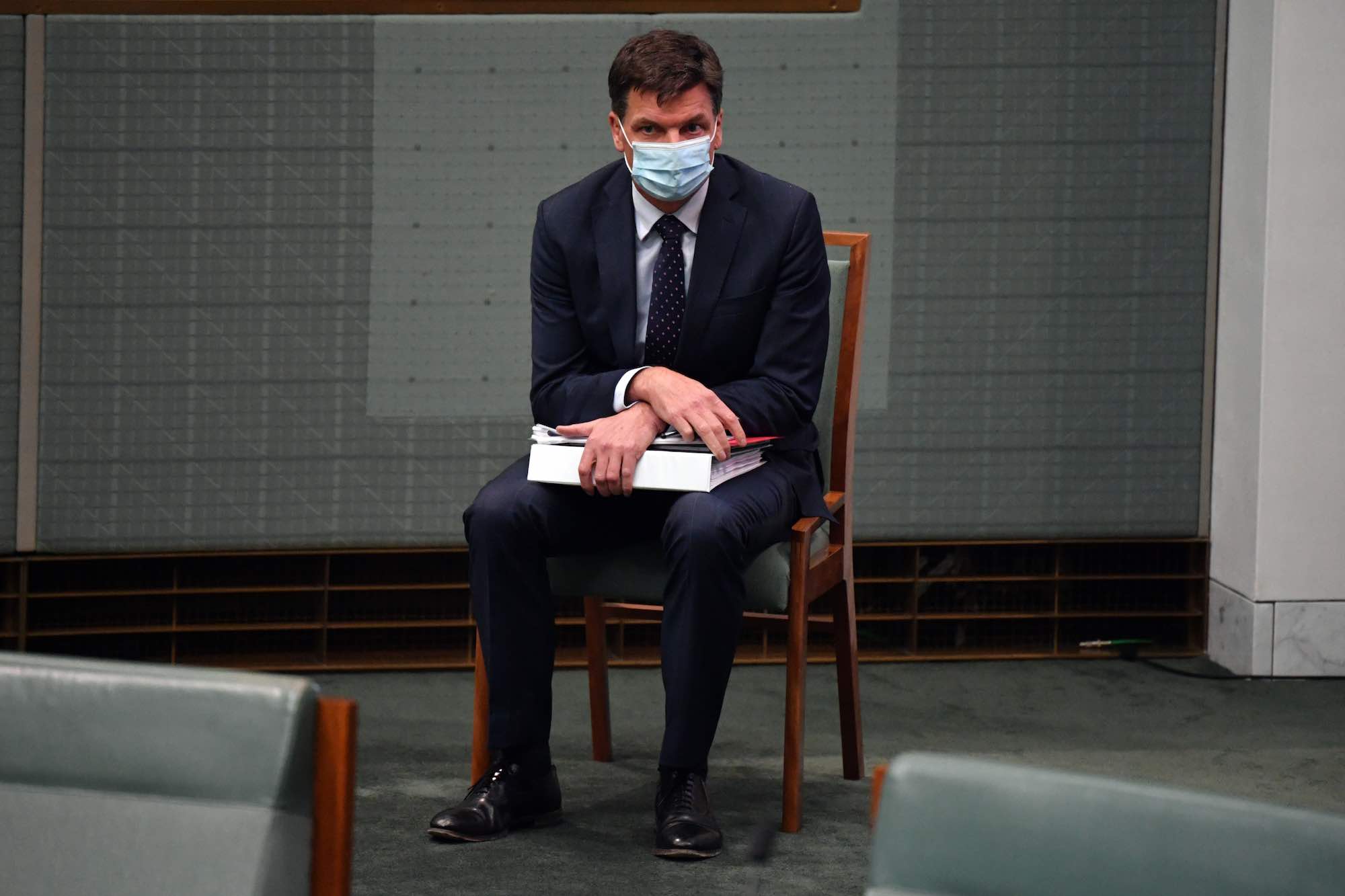Australians will not get to see the Morrison government’s modelling of a 2050 net zero emissions target – expected to be adopted as formal government policy – after federal energy minister Angus Taylor used a ‘public interest immunity’ claim to reject a Senate order for their release.
Last week, the Australian Senate passed a motion ordering the Morrison government’s net zero target modelling to be tabled in the Senate. The motion passed after Labor, the Greens and the crossbench – including One Nation – combined to demand its release.
But on Monday, Liberal senator Zed Seselja, who represents Taylor in the Senate, told a senate estimates hearing that Taylor would not comply with the senate order because releasing the document would not be in the public interest and would undermine the “concept of responsible government”.
“I can advise this morning that a public interest immunity claim has been made by minister Taylor with regard to these documents, on the basis that the documents inform and were the subject of cabinet deliberations and would or could reasonably be expected to disclose the deliberations of the cabinet,” Seselja said.
“There is a long standing principle that documents for consideration of cabinet remain confidential. This is essential to the effective operation of Australia’s executive government meant cabinet confidentiality is a foundational principle of the Westminster system dating back to the 1600s.”
“It’s central to the concept of responsible government. The disclosure of cabinet documents, as required by the [order for the production of documents] would fundamentally undermine this principle,” Seselja said.
A ‘public interest immunity’ claim may be made by cabinet ministers when they deem that the release of cabinet documents would be “prejudicial to the public interest“.
Here is Angus Taylor's 'public interest immunity' claim for his refusal to release the government's net zero emissions modelling. pic.twitter.com/ioBCQtWmrs
— Michael Mazengarb (@MichaelM_ACT) October 25, 2021
The Morrison government has consistently attacked the federal Labor opposition for adopting emissions reduction targets without publishing economic modelling of the costs. These attacks have also been levied on opposition parties by some sections of the media.
Instead, the Morrison government used the work from its preferred modeller Brian Fisher that was widely criticised for massively over-inflating the costs of climate action – including the costs of renewable energy technologies – to run a scare campaign around Labor’s climate policies in the 2019 federal campaign.
Now, with the shoe on the other foot, the Morrison government is refusing to release modelling of its net zero emissions target for 2050. This modelling will underpin an official emissions reduction commitment Morrison will announce on behalf of Australia at the UN climate negotiations next week.
Both Seselja and representatives from the Department of Industry, Science, Energy and Resources have spent much of the Monday senate estimates hearing refusing to disclose the details of an agreement reached by the Nationals party on a new climate policy.
It is an awkwardly timed Senate estimates hearing. It is widely known that a deal has been struck by the Liberal and Nationals parties on a net zero target for 2050, but the deal has yet to be endorsed by the federal cabinet.
The details of what concessions have been given to the Nationals have not been disclosed, with Seselja refusing to answer questions about whether it included commitments to an Australian nuclear energy industry, the creation of a $250 billion loan facility for the resources sector, a commitment for a new coal fired power station, or the promotion of resources minister Keith Pitt back into the cabinet.
Seselja would only say that an announcement would be made before the COP26 climate talks, which kick off in Glasgow next week.
What was confirmed – the Morrison government will not be making any changes to its 2030 emissions reduction target, first adopted in 2015 under the Abbott government.
This is despite expectations that new emissions projections to be published by the federal government will show Australia is on track to significantly overachieve on its current 2030 target to cut emissions by 26 to 28 per cent – thanks to the combined effect of state and territory targets.
Later on Monday, Morrison confirmed that Keith Pitt would, in fact, be promoted back into the federal cabinet.










